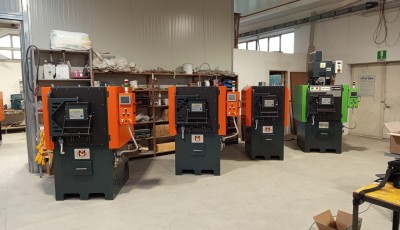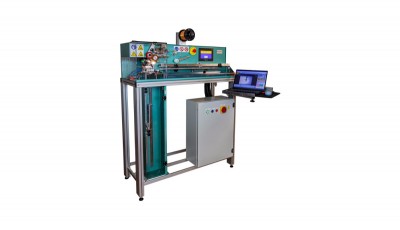The New Era has Begun
It is said that in 2020, within 5 months, the world has progressed in terms of technology as it usually evolves over 5 years, and this is certainly true in the jewelry sector. Andrea Hill, Founder consultant of Hill Management Group
How has the international jewelry industry changed during Covid? And which changes will be maintained after the pandemic?
I think there have been four significant areas of change to the jewelry industry related to the pandemic: Supply Chain impacts, adoption of technology, employment practices, and the accelerated acceptance of labgrown diamonds
Supply Chain Impacts
Because so much of the world’s finished jewelry production has been outsourced to Asia, the early shut-downs caused almost a complete stoppage of the flow of finished goods. It took almost six months for supply to start building again, and during that time, brands around the world started reevaluating their manufacturing strategies, and retailers reevaluated their trading partners. The risks of outsourcing production have always been known, but prior to the pandemic, few in the industry actually believed those risks would become reality. Now the supply chains are moving again, with sporadic interruptions, and I suspect most brands will return to business-as-usual. But smart brands have taken advantage of this opportunity to domesticate some of their production, invest in new technologies that make local production more reliable and affordable, and are promoting their efforts to produce domestically. For the highest luxury brands, this comes with the added benefits of capitalizing on cultural associations with their brands and helps them better protect their intellectual property.
Adoption of Technology
All levels of the jewelry industry have been slow to adopt technologies of the 21st Century, and the pandemic highlighted this weakness. Manufacturers that had upgraded their business systems and production controls before the pandemic were able to send workers home and stay in business while managing production with much smaller work forces. Retailers that had invested in online marketing tools and channels were able to shift from in-store shopping to online orders and curb-side deliveries. Wholesale companies that were completely dependent on trade shows and travel for prospecting and selling suffered much greater losses than companies that had flexible sales organizations supported by B2B online customer portals.
Employment Practices
When the shut-downs occurred, companies in all industries had to figure out how to get their employees working remotely, and this exposed many shortcomings in management and in corporate culture. Motivating and managing a remote workforce requires highly effective use of collaboration and productivity tools and more effective management behaviors. Not all companies rose to the challenge, and those have struggled to keep up with the work even in the face of reduced demand. But some of the top brands around the world used this opportunity to restructure their approach to management, sales organizations and sales strategies, and compensation and motivation.
I think there have been four significant areas of change to the jewelry industry related to the pandemic: Supply Chain impacts, adoption of technology, employment practices, and the accelerated acceptance of labgrown diamonds
Supply Chain Impacts
Because so much of the world’s finished jewelry production has been outsourced to Asia, the early shut-downs caused almost a complete stoppage of the flow of finished goods. It took almost six months for supply to start building again, and during that time, brands around the world started reevaluating their manufacturing strategies, and retailers reevaluated their trading partners. The risks of outsourcing production have always been known, but prior to the pandemic, few in the industry actually believed those risks would become reality. Now the supply chains are moving again, with sporadic interruptions, and I suspect most brands will return to business-as-usual. But smart brands have taken advantage of this opportunity to domesticate some of their production, invest in new technologies that make local production more reliable and affordable, and are promoting their efforts to produce domestically. For the highest luxury brands, this comes with the added benefits of capitalizing on cultural associations with their brands and helps them better protect their intellectual property.
Adoption of Technology
All levels of the jewelry industry have been slow to adopt technologies of the 21st Century, and the pandemic highlighted this weakness. Manufacturers that had upgraded their business systems and production controls before the pandemic were able to send workers home and stay in business while managing production with much smaller work forces. Retailers that had invested in online marketing tools and channels were able to shift from in-store shopping to online orders and curb-side deliveries. Wholesale companies that were completely dependent on trade shows and travel for prospecting and selling suffered much greater losses than companies that had flexible sales organizations supported by B2B online customer portals.
Employment Practices
When the shut-downs occurred, companies in all industries had to figure out how to get their employees working remotely, and this exposed many shortcomings in management and in corporate culture. Motivating and managing a remote workforce requires highly effective use of collaboration and productivity tools and more effective management behaviors. Not all companies rose to the challenge, and those have struggled to keep up with the work even in the face of reduced demand. But some of the top brands around the world used this opportunity to restructure their approach to management, sales organizations and sales strategies, and compensation and motivation.
Lab Grown Diamonds
Lab grown diamond sales grew rapidly during the pandemic, due to a combination of factors including slow-downs in the mined diamond supply chains and increased global focus on social justice. Worldwide consumer awareness of lab grown diamonds grew from less than 55% at the beginning of 2018 to over 80% today.
Can we speak about an evolution or a revolution?
What the pandemic did was take the existing trends and demonstrate the suddenly undisputable disadvantages of having outdated technology, and the risks of having all your manufacturing half a world away. I think for the most part we’ve experienced fast evolution; an industry that was largely behind-the-times rapidly catching up. But there is the potential for revolution as well.
Can you describe your business and your next perspectives?
My company is Hill Management Group (hill-management.com), and we have three brands that serve the jewelry and accessories industries: StrategyWerx (strategywerx.com), which is a full service consultancy for all aspects of jewelry business from strategy to technology to production; WerxMarketing (werx.marketing), which is a full service digital marketing agency; and MentorWerx (mentorwerx.com), which offers team and professional development services to companies and individuals. To my knowledge, we are the only company that serves the entire jewelry industry vertical, from mines to market, with clients on nearly every continent
Lab grown diamond sales grew rapidly during the pandemic, due to a combination of factors including slow-downs in the mined diamond supply chains and increased global focus on social justice. Worldwide consumer awareness of lab grown diamonds grew from less than 55% at the beginning of 2018 to over 80% today.
Can we speak about an evolution or a revolution?
What the pandemic did was take the existing trends and demonstrate the suddenly undisputable disadvantages of having outdated technology, and the risks of having all your manufacturing half a world away. I think for the most part we’ve experienced fast evolution; an industry that was largely behind-the-times rapidly catching up. But there is the potential for revolution as well.
Can you describe your business and your next perspectives?
My company is Hill Management Group (hill-management.com), and we have three brands that serve the jewelry and accessories industries: StrategyWerx (strategywerx.com), which is a full service consultancy for all aspects of jewelry business from strategy to technology to production; WerxMarketing (werx.marketing), which is a full service digital marketing agency; and MentorWerx (mentorwerx.com), which offers team and professional development services to companies and individuals. To my knowledge, we are the only company that serves the entire jewelry industry vertical, from mines to market, with clients on nearly every continent






